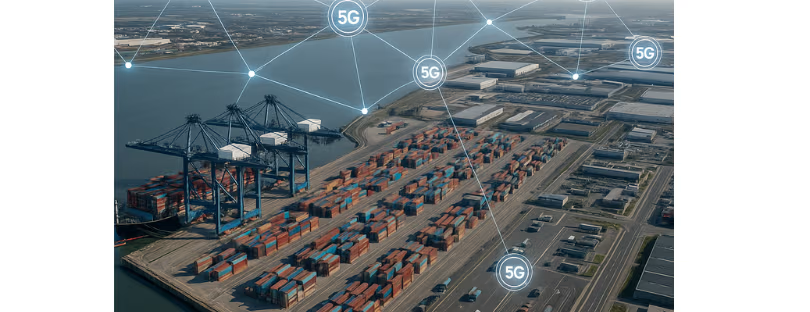Alertify
2w
431

Image Credit: Alertify
Thames Freeport Goes Smart: Verizon and Nokia Launch Landmark Private 5G Port Network
- Verizon Business, Nokia, and Thames Freeport have partnered to deploy private 5G networks along the River Thames Estuary.
- The initiative aims to revitalize the region's maritime economy and targets key Freeport sites like DP World London Gateway and Logistics Park, Port of Tilbury, and Ford Dagenham.
- The networks will offer advanced capabilities like AI analytics, predictive maintenance, and real-time logistics orchestration.
- Nokia's Digital Automation Cloud platforms will power the networks for efficiency and sustainable growth.
- Thames Freeport CEO emphasized the importance of private 5G for their long-term vision.
- Verizon Business sees the deployment not just as an operational boost but also as a driver for new revenue streams and technological investment.
- The partnership with Nokia also involves Carrix in the US for a similar private wireless solution.
- The Thames Freeport 5G initiative sets a blueprint for industrial and maritime digitization globally.
- It signifies the necessity of private 5G for resilience, automation, and competitiveness.
- The initiative integrates multiple Freeport nodes for end-to-end orchestration and innovation.
- The collaboration of Verizon, Nokia, and Thames Freeport echoes trends seen in other global ports' digital transformations.
- The project is a case study in next-gen industrial strategy, emphasizing the importance of investing in digital infrastructure for future competitiveness.
- Thames Freeport's early adoption of private 5G sets a precedent for other ports and free zones to follow suit.
- The private 5G deployment is a significant step towards technological advancement and economic growth in the region.
- The Thames Freeport initiative showcases the convergence of expertise in network deployment, technology readiness, and economic vision towards a unified ecosystem.
- This partnership highlights the increasing importance of digital transformation in industrial sectors globally.
Read Full Article
25 Likes
For uninterrupted reading, download the app